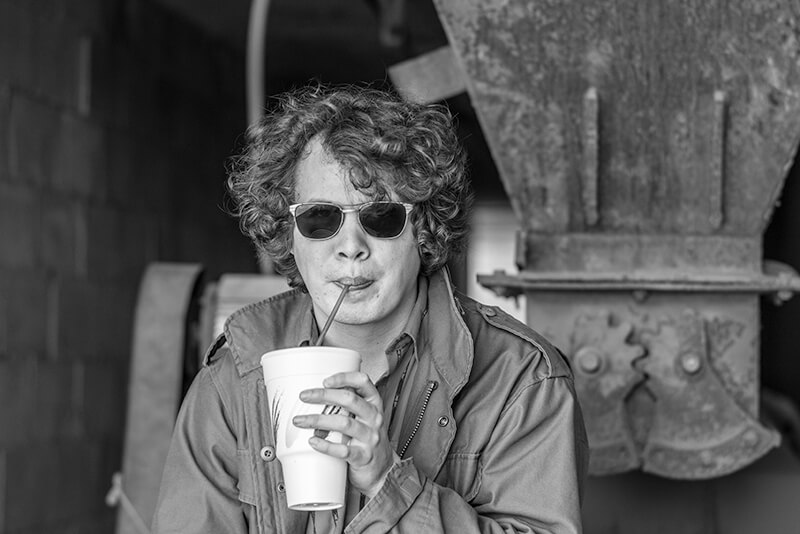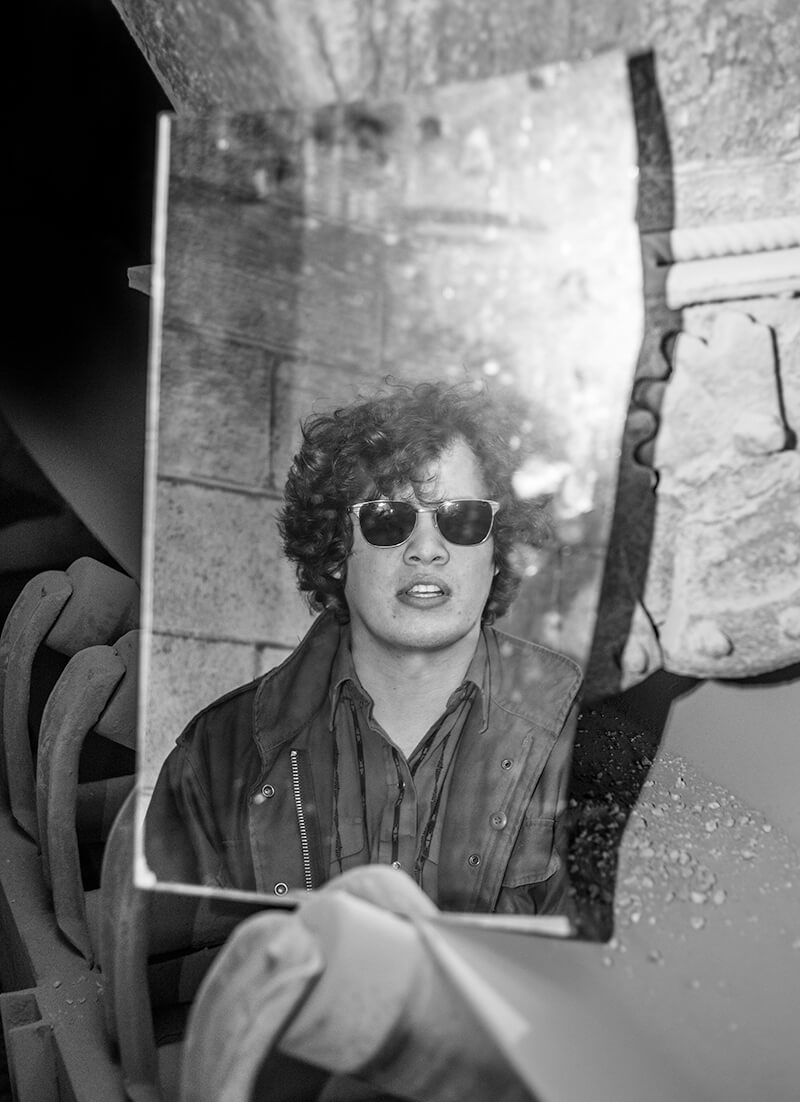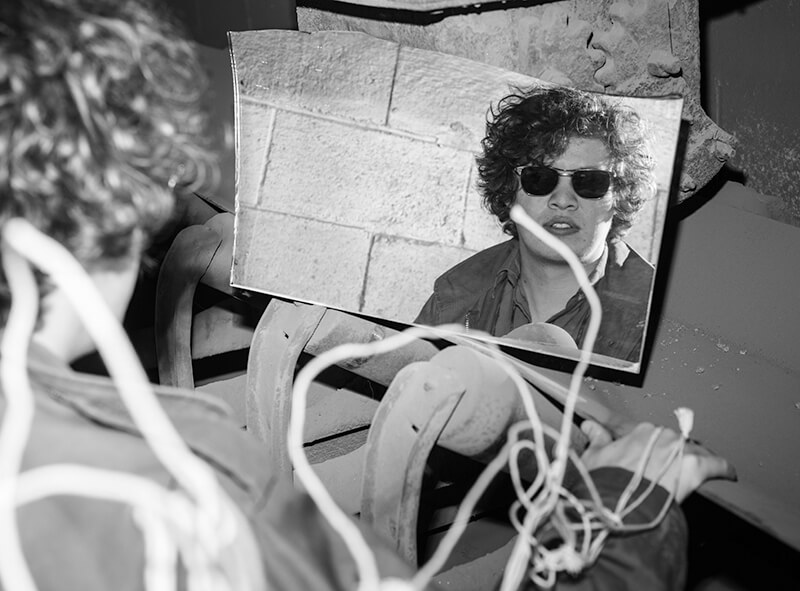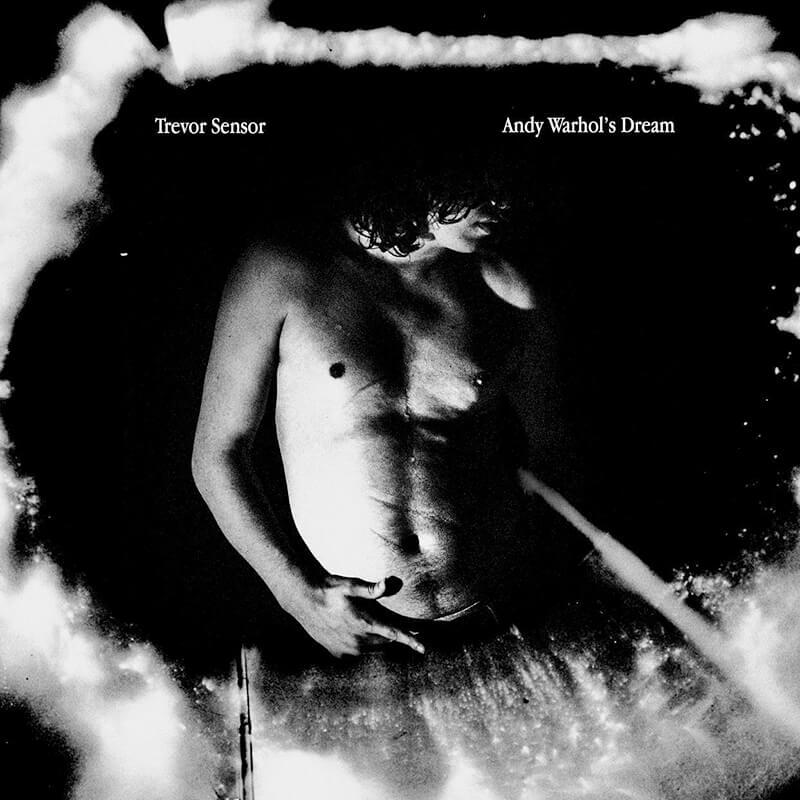Trevor Sensor just dropped his debut album, Andy Warhol’s Dream on Jagjaguwar, a Midwestern-mishmash of dust-bowl anthems, acoustic ruminations and Melloncamp-inspired chutzpah. We sat down with the young artist to get inside his head, and explore his creative process…
Is there any line between your life and your art?
Oh, sure – I mean, the art is influenced by things that happen in my life or things that I observe. But, the thing that’s really important is: there has to be a separation. People shouldn’t really give a shit about who I am as a person. Or try to read into my life or anything like that when they’re listening to the songs – because there’s a separation factor. Unfortunately, today we live in a culture that is celebrity obsessed. If for some God-forsaken reason my stuff ever took off, y’know, I fear people would be more obsessed with what I’m doing than my work. And the thing is – is it’s the work that matters.
I think Sufjan Stevens just did an interview where he put it so perfectly: “The work ultimately outlives the vessel of the work” and that’s the truth of it.

Can music save America?
Ha! Well.. so, a lot of people are in this battleground of politics right now, right? You go on your Twitter feed or anywhere, I mean we have … leftists basically all over the place trying to take down the right because the right-wingers hold all the power right now. But I think there are things that run so much deeper than politics – I think politics are kind of an insight into what the deeper issues are – y’know, like this last election was more about entertainment and mudslinging, than it was about ideology or legislation.
Even Hillary Clinton didn’t talk about legislation. She just mud-slang Trump. I mean, [she] called him every name in the book and he still won. There’s a danger right now you know, we’re kind of in a cultural stupor.
I do think art’s job is to motivate the culture in a certain direction.
People, for example, don’t want to watch films that challenge them or think too hard they wanna see… ‘Well, I know Ghostbusters – so I’m gonna go watch the Ghostbusters reboot’ or ‘I know Spider-Man so I’ll watch the 7th Spider-Man movie.’
And it’s the art industry’s job to get their mind off of profits and start to think: what’s my responsibility to society? My responsibility to society is, yes I have to run a business, yes I have to make money – but I don’t think they understand clearly enough that they control what people like. If tomorrow all the mainstream media outlets said that ‘Sufjan Stevens is the greatest songwriter of the generation – everybody should go buy his records’ I guarantee you the record sales would go up. But even then, it’s like, I don’t know if it saves America or not — I don’t know what saves America or the cultural west or anything like that. It just seems like now we’re living in a very hedonistic entertainment-drenched culture and people are frankly more so obsessed with beautiful people (and vicariously living through them) than we are about becoming individuals and having our own thoughts and critically thinking about things.
I just know it seems like from history artists like Andy Warhol or William S. Burroughs or other people have influenced the culture (at least of recent history) and things changed because of that. And I think everybody’s stuck up in dogmatic crap right now between mainstream pop and the indie world…I’m breaking away from all this. Setting forth a new way that’s willing to really impact the culture – not just play to my little compartmentalized indie culture or the mainstream pop culture. Does that make sense? That was a bit rambly.

You have this backlog of 70 songs. I’m curious – you have a song written, do you have multiple musical versions of individual songs? And then, within that, how do you choose the right one, or how do you take this abstract idea of these words and this sound and then have this final record realized?
That’s a great question. How my writing process goes is – I have all these demos – they aren’t professionally recorded, and it’s just me and one instrument and some experimental crap I’ll throw in Garage Band or something – but they all have an essence to them. I never sit down and say ‘I’m gonna write songs,’ the song just comes to me, and has this essence to it, I just know it has a certain vibe to it, and my job is to properly form that to fit the essence of that song.
If I were to try and make “High Beams” into a reggae song – that would just not be correct. It would not fit the essence of that song. When you get in the studio though, and you start forming an album – there’s a basic idea that you should go into it like, ‘What do I want to do here?’ I have it all in my head – but like any piece of art, what’s in my head, and what’s put out in the world is going to change. Because whatever’s in my head isn’t going to be duplicated out in the tangible world for people to hear, so my best job is to try and mimic that (what’s in my head) when I’m in the studio, actually recording it.
As for selecting songs, I just pick songs that go together as if they were a film, or a novel. I mean, this album has songs from different eras of songwriting on it. It’s not like I just wrote a bulk of work and said, ‘There’s the record.’ I went through my catalog and said, ‘These are the songs that fit together for a type of thematic thing that I’m trying to go for.’ Not to say this record is concept record, at all, but there are themes that are there that fit together properly, and sonically they have to flow properly to make it a good album.

Sometimes in the process of execution, things change; if you get in a good room with some good people, usually some magic can happen. And if you keep mixing the different types of people that you’re with – you’ll get different results every time. So that’s basically how I go about it – all these songs have core essences to them and the whole song is playing out in my head in all parts like an orchestra or something, and then I try and bring it out in the world the best I can to fit to my idea and these essences that I want. It sounds a little abstract when I put it like that. It’s never like I have five different ways to make a song; I usually know the direction the song wants to be recorded and performed.
*Photos by Ben Rouse
Trevor Sensor – Andy Warhol’s Dream
Standout Track: “High Beams”
Follow on Twitter @trevorsensor

